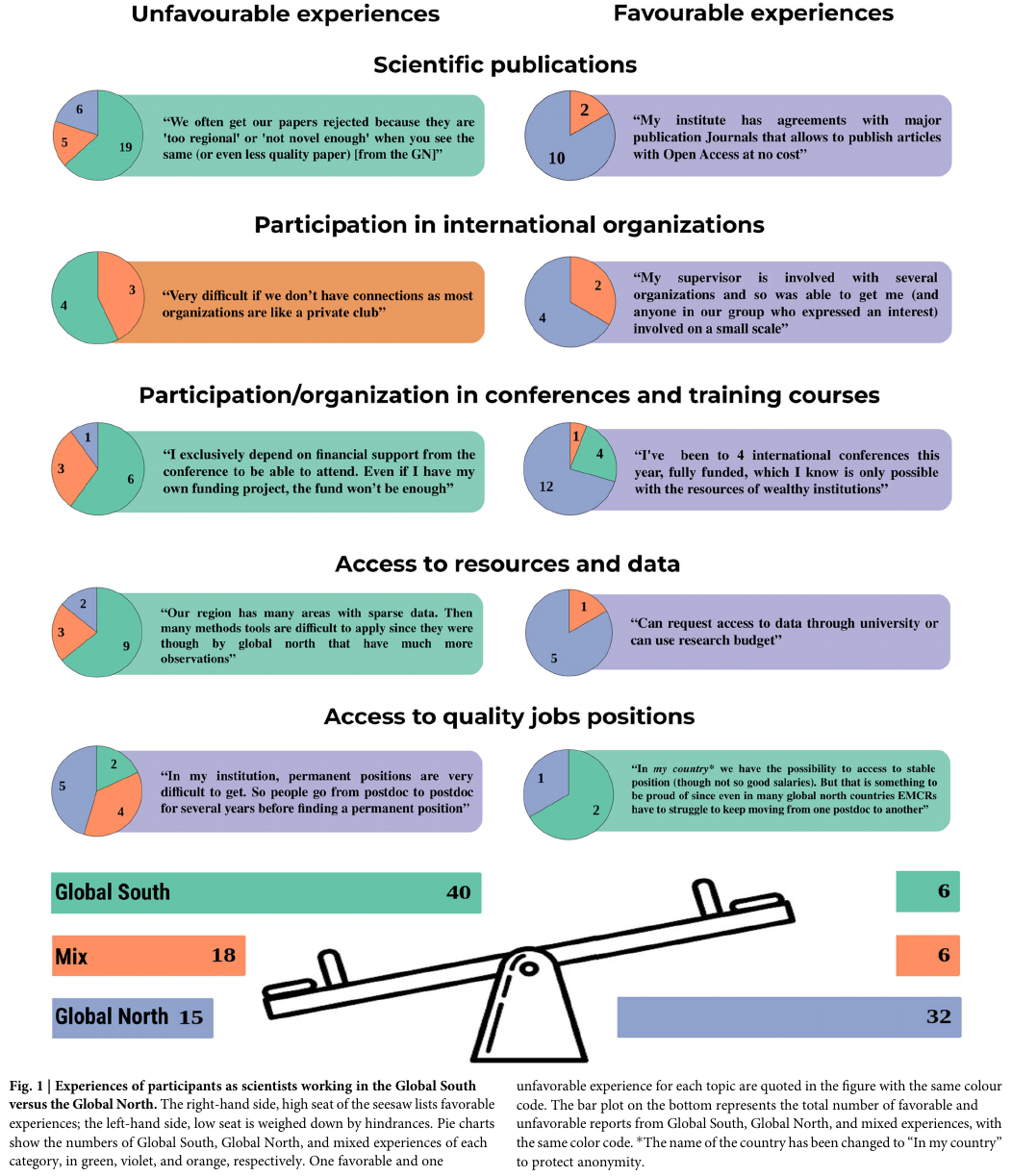Balancing Earth science careers in an unequal world
Unequal research experiences among Earth scientists from around the world are an obstacle to achieving sustainability. We assess challenges and propose ways to balance the careers of early- and mid-career researchers in the Global South with those in the Global North.
YESS: Young Earth System Scientists
Problems
- scientific communities of the Global South are being held back in their contribution to Earth science knowledge creation, to the detriment of their societies
- leads to unequal adaptation to environmental risks, aggravating climate injustice

Solution proposals
Publishers
- publishers offer fee waivers for low- and middle income economies
- journals include early- and mid-career researchers from Global south in editorial boards
- open editorial offices in Global South
- double-blind peer reviews to reduce bias against Global South
- account for research resources and data availability in the region
- publish regional submission and acceptance statistics for transparency
- language should not be an acceptance barrier (use LLMs)
Global South institutions
- host project offices
- lead international projects
- organize relevant scientific events
Global North
- recognize privileges
- avoid reproducing colonial bias
- clear communication conscious of language barriers
- invest in research infrastructure and data access in the Global South
General
- host conferences in countries with lower visa barriers
- allow languages other than English in conferences (simultaneous translation)
- make online resources available in different languages
- ensure access to long-term, fairly paid job opportunities
- ensure diverse representation among speakers
- facilitate visa applications for Global South participants
- offer scholarships to support Global South researchers
- foster Global South-North and South-South collaborations
Other
- easier to get permanent positions in Global South
- they are not well paid